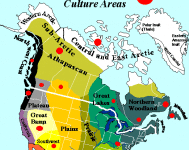jollyjacktar said:
The thing is Chris, I'm an actual infidel. I don't hold the beliefs of my having a soul or meeting my ancestors when I shuffle of this mortal coil, to borrow from the Bard. My swearing to God, would be false and therefore not ethical. Just because I don't share the belief in a higher power as other Canadians who do doesn't make me unethical or untrustworthy. You just need to have me make my oath in another manner that is as binding and trusted. The end result is still the same and honestly that is the desired goal, is it not?
I would be happier about someone swearing an oath in a manner that holds the same weight to them as an oath would mean to you. I want your word as your bond, not just empty words that have no meaning to you as a measure of your integrity.
Just as torture is not actually effective in learning intelligence from your subject. He's going to say anything to get the bad man to stop, even if it's total bullshit. The man may think he's ahead of the game and might even really enjoy playing the game with his new friend, but is it of value?
So OK, you're not keen on a citizen not making this oath. What to do then for those Republicans out there or other non-Monarchists? Tell them to swear or the deal is off? If they recant like this Israeli, instantly take the citizenship back? If the Government doesn't have the balls to strip it from terrorists, that won't happen for oath breakers, you can bet. At the very least, I could see no end of litigation against said Crown. At $10.5M terrorist hush money type of bonanza will be a common event, I'd wager.
As much as an oath option rots you, as K money burns my ass. Maybe we both need to get with the times as with all the snowflakes and SJWs out there, the times, they are a changing.
Jack, the oath option doesn't "rot" me.
I respect the fact that you respect the oath enough to take the words seriously.
In my opinion the oath, or any oath, was not just a matter of the individual promising to obey the terms of the oath being sworn but it was also a matter of that individual putting up surety for his or her actions and agreeing to be judged for his or her actions.
The surety being given was the individual's soul and the judge a higher power that had the ability to deprive the individual of the benefits of their soul and the promise of meeting their ancestors.
Whether the soul, or the supreme being, exists is entirely beside the point. The oath was effective when the oath takers believed, and believe, they exist.
What do modern "oath takers" value as highly?
I don't know the answer to that. And I don't know that there is an answer. Swearing on "my mother's eyes" or "my first born" comes close but doesn't really cut it any more than Shylock's "pound of flesh". Nobody really expects to be held to those agreements.
I remember being quite taken with the chants of the Iraqi's under Saddam - something along the line of "we pledge to you our blood and our soul". That, for a believer, is quite the undertaking - not just this life but the afterlife. And in a society of men beating their backs bloody for their beliefs I'm inclined to think that those oath takers were fully cognizant of the implications of their words and the consequences if their judge determined that they and Saddam were in the wrong.
I do know that I don't respect anybody who enters into an agreement fully intending to breach the agreement before the ink is dry. That person is demonstrably untrustworthy.
With respect to the individual that took the oath not intending to honour it I am strongly of the opinion he should never have been allowed to take the oath and never been admitted in the society of Canadians.
My children, born and raised in Canada and thus here without choice, have the right to set the terms of the society in which they live. They are within their rights to ditch the crown and elect a president if that is their wish and they can convince their fellow Canadians to agree with them.
But me, and the individual referred to above, and all the other immigrants to this country, we should have no such rights. We are guests in this country and of Canadians. It is not our right to adjust the house rules. Our only right is to agree to abide by the house rules or relocate.
I disagree entirely with first generation immigrants, myself included, setting the laws for Canada.



